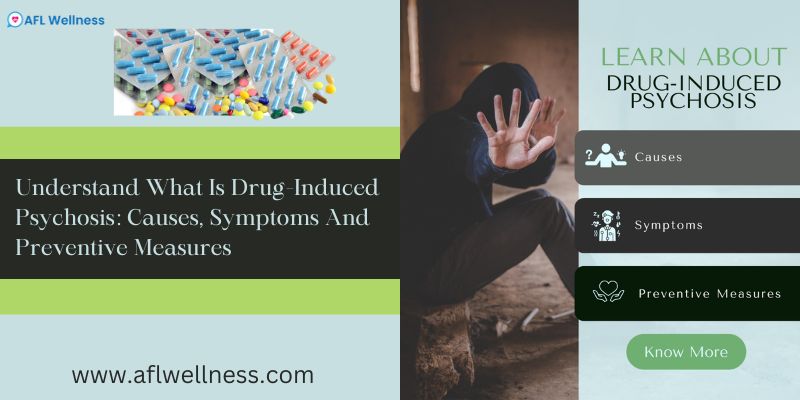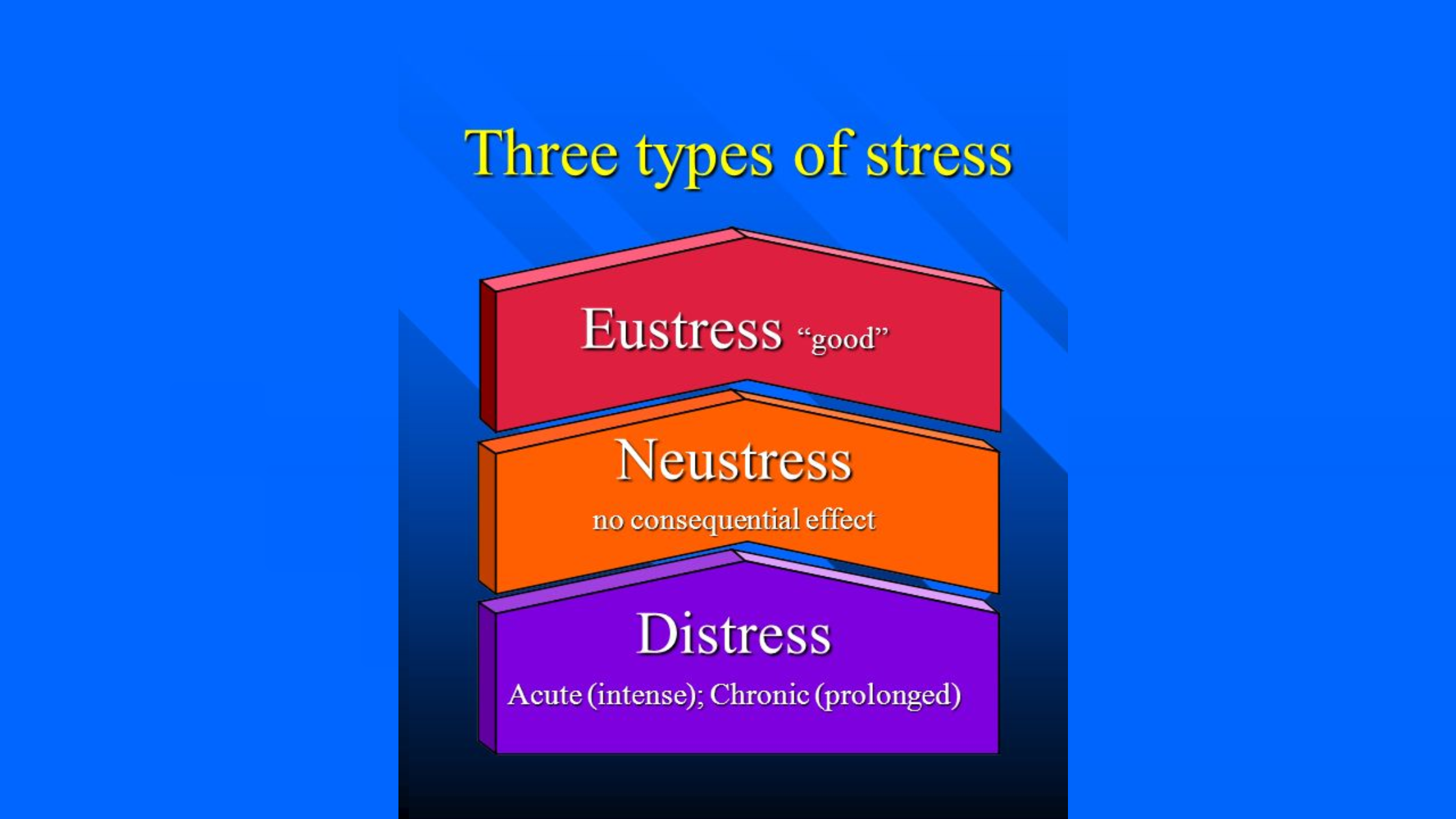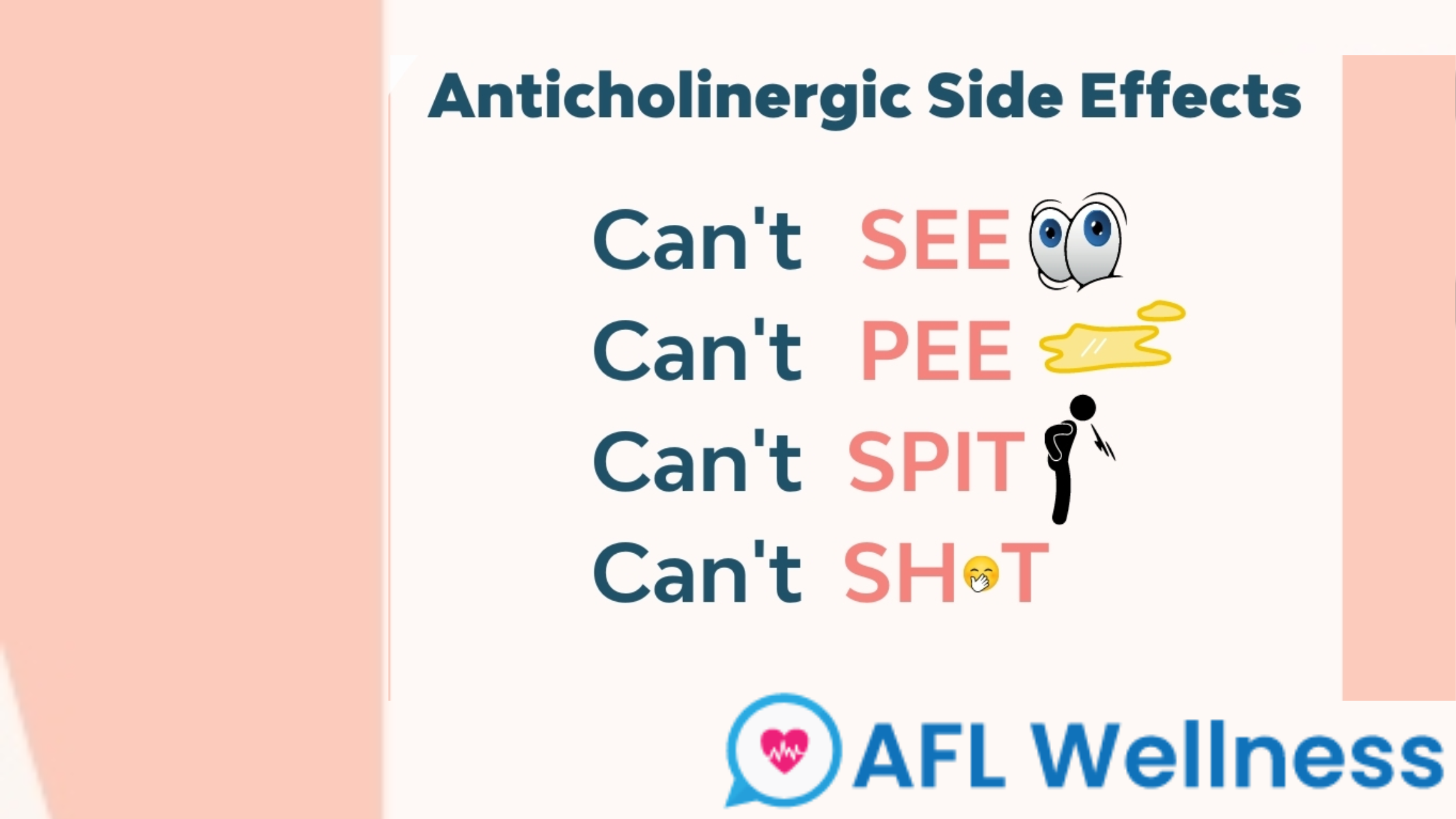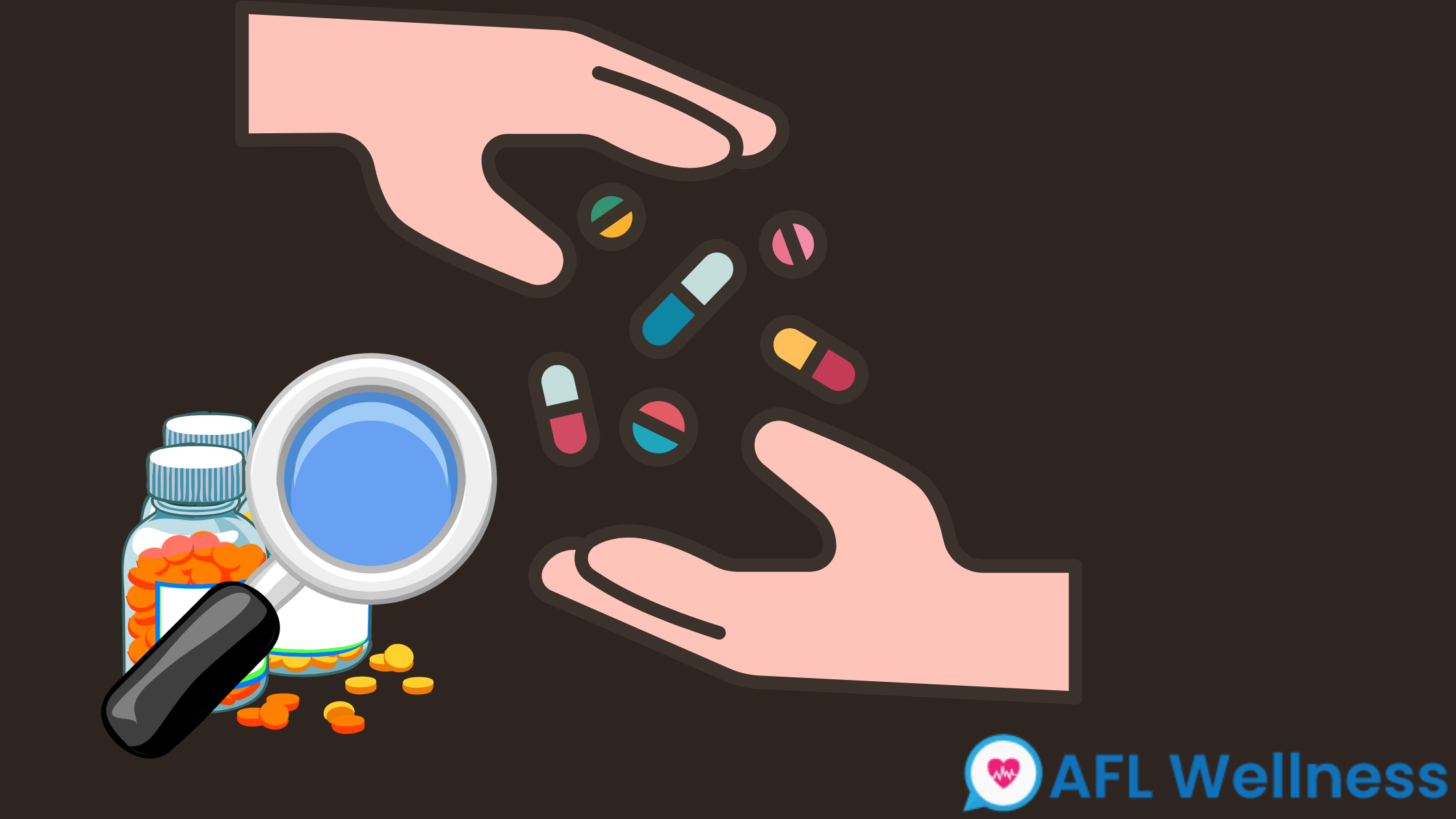
January 05, 2026
Understand What Is Drug-Induced Psychosis: Causes, Symptoms And Preventive Measures
Drug-induced psychosis is a severe mental health condition that occurs as a result of the consumption of various substances, both legal and illegal, that alter brain chemistry. Drug-induced psychosis can be triggered by various substances and their effects on the brain. It's important to note that individual factors, such as genetics and a predisposition to mental health conditions, can interact with these substances to increase the likelihood of experiencing drug-induced psychosis. The combination of drug use and these underlying vulnerabilities can heighten the risk of developing this condition. Therefore, the causes of drug-induced psychosis are multifaceted, involving both the substances themselves and the unique characteristics of the individuals who use them.
What Are The Four Common Causes Of Drug-Induced-Psychosis
The intake of too many drugs causes drug-induced psychosis. It increases the level of toxicity that provokes paranoia and psychosis episodes. Here are four common causes:
Stimulants:
Stimulant drugs such as amphetamines, methamphetamines, and cocaine can induce psychosis. These substances increase the release and block the reuptake of dopamine, a neurotransmitter associated with pleasure and reward. Excessive dopamine in the brain can lead to symptoms like paranoia, hallucinations, and agitation.
Hallucinogens:
Drugs like LSD, psilocybin mushrooms, and PCP (phencyclidine) are known for their hallucinogenic properties. They disrupt the brain's normal perception processes, leading to altered sensory perceptions and thoughts. This altered state of consciousness can result in hallucinations and delusions.
Cannabis:
Although often considered a relatively mild drug, high doses of cannabis, particularly those with high levels of THC (tetrahydrocannabinol), can induce psychotic symptoms.
Prescription Medications:
Some prescription medications, particularly those affecting the central nervous system, can lead to drug-induced psychosis. Medications such as corticosteroids, anticholinergic drugs, and certain antidepressants have been associated with this condition. The precise mechanisms vary but often involve disruptions in neurotransmitter systems.
Get To Know The Symptoms of Drug-Induced Psychosis
It's important to note that the severity and duration of these symptoms can vary widely. Some individuals may experience a single, brief episode of drug-induced psychosis, while others may have recurrent episodes with more severe symptoms. Distinguishing drug-induced psychosis from primary psychosis, such as schizophrenia, is crucial for appropriate diagnosis and treatment. Early intervention and seeking professional help are essential to managing these symptoms and promoting recovery. Drug-induced psychosis tests can manifest a range of distressing symptoms. Here are four common symptoms associated with this condition:
Hallucinations:
Hallucinations are false sensory perceptions where individuals see, hear, feel, or even smell things that are not real. In drug-induced psychosis, visual and auditory hallucinations are common. For example, a person might see objects or people that aren't there or hear voices speaking to them.
Disorganized Thinking:
It can manifest as incoherent speech, rapid changes in topic, or difficulty organizing thoughts logically. This disorganized thinking makes it challenging for individuals to communicate effectively and can be distressing for both the affected person and those around them.
Agitation and Aggressiveness:
Agitation and aggressive behavior are common symptoms of drug-induced psychosis. The altered perception of reality and the presence of hallucinations and delusions can lead to heightened levels of anxiety, frustration, and anger. Individuals may become combative or irritable, putting themselves and others at risk.
Preventive Measures Taken To Cure Drug-Induced Psychosis:
Preventing drug-induced psychosis involves both individual choices and public health efforts. Both recovery and prevention require a multi-faceted approach that combines medical treatment, social support, and public policy measures. Educating individuals about the risks, supporting those in need, and addressing substance-induced psychotic abuse problems are crucial components of these efforts.
Here are some preventive measures:
Early Intervention: It is crucial to train the healthcare professionals who all should be trained properly in the field of medical science and they should be able to treat and recognize the harmful substances of abuse that are affecting the body.
Safer Drug Use Practices: If individuals choose to use substances, they should be aware of safer drug use practices, such as avoiding high doses and mixing substances cautiously. Harm reduction strategies, like needle exchange programs for intravenous drug users, can minimize risks.
Access to Treatment: Ensure that individuals who develop substance abuse problems or drug-induced psychosis have access to appropriate treatment services. Reducing barriers to treatment can make it more likely that people will seek help.
Regulation and Control: Enforce regulations on the production and distribution of drugs. Stricter controls on certain substances can reduce their availability and misuse.
Mental Health Support: Provide easy access to mental health support for those at risk or who have experienced psychosis. Early intervention in mental health issues can prevent the progression of symptoms.
Conclusion
Drug-induced psychosis is a significant mental health concern that results from the consumption of various substances. Understanding the causes, symptoms, and available treatments is essential for both prevention and effective intervention. Seeking professional help and support is crucial for individuals experiencing drug or alcohol-induced psychosis, as it can lead to better outcomes and a higher likelihood of recovery. Education and awareness play a vital role in preventing drug-induced psychosis, highlighting the need for a comprehensive approach to address this issue. We utilize scientific methods to understand the symptoms of this disorder. Nasha Mukti Kendra has experienced counselors who all help individuals who are struggling with this disorder. Moreover, we also provide yoga and meditation sessions that would be beneficial for the healers.






